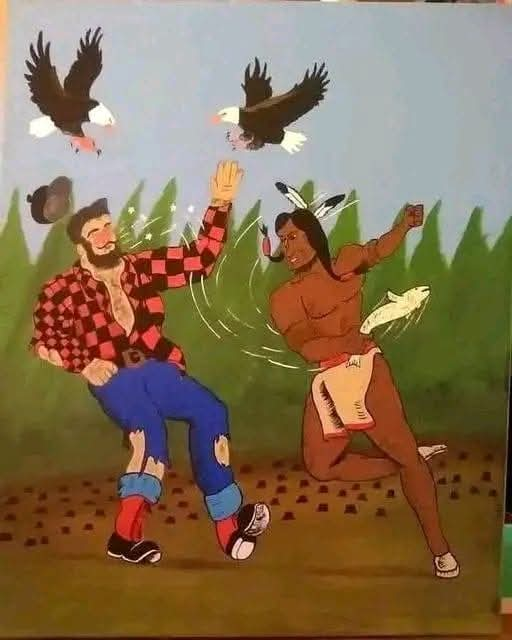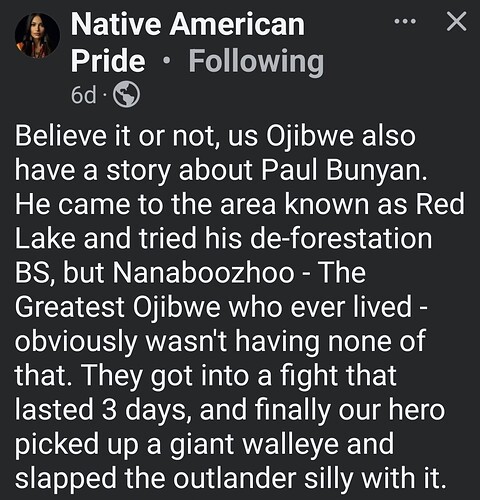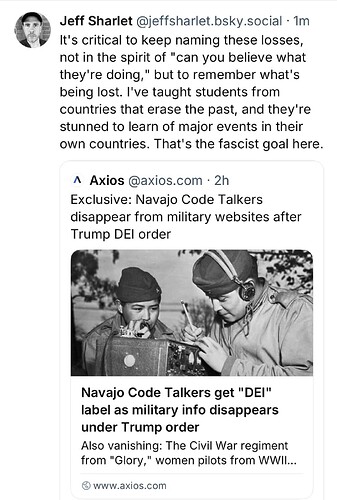A place to discuss indigeneity, anywhere any way, past, present, future, real, imaginary/fantasized, etc.
I’ve always felt a bit of ick while listening to “land acknowledgements.” They feel to like empty, white-guilt-relieving performances, unaccompanied by any actual action. They also reinforce a sense that indigenous people are sadly vanished relics of the past.
This piece does a great job of calling out that problem, and of suggesting ways to rectify it.
My colleague Amanda Cobb-Greetham, the founding director of the Chickasaw Cultural Center in Sulphur, Okla., and a citizen of the Chickasaw nation, told me that instead of lengthy discussions about whether and how to write land acknowledgments, institutions should engage in active and meaningful relationships with the Native nations that are now or were on the lands those institutions occupy. Florida State University and the Seminole Tribe of Florida have established such a relationship, which started with the tribe’s involvement in designing the mascot’s regalia but now extends to other partnerships, including creating a Native American and Indigenous Studies Center.
Cities, counties and states could share jurisdiction of some of their lands and projects to tribes and work as partners. The Covid-19 virus hit reservations particularly hard in the early months of the pandemic, but because in the past few decades many tribes took over the management of their public health systems from the Bureau of Indian Affairs, many tribal governments ultimately had better outcomes than neighboring non-Native-majority counties. Tribes already partner with the federal government in areas such as land and resource management, marking the 250th anniversary of the American Revolution and cleaning up Superfund sites. Rather than mourn the past through land acknowledgments, institutions should expand these more practical efforts and work with modern Native nations as true partners.
Thanks, sounds great!
I enjoyed the first episode.
Yes and:
Food is politics.
Health is politics.
Sovereignty is definitely politics.
Buffy St. Marie has been stripped of her Governor General’s Award. This is a video from Sandi Boucher (Red Thunderbolt Woman), a Truth and Reconciliation counselor from the Seine River Nation in Northern Ontario.
On the same theme, I highly recommend this show.
Also on Kanopy, if this link doesn’t work for you.
Paul got knocked on his ass in a mud puddle, so hard it left an imprint of his buttcheeks there in the wet ground…thats why the lake is shaped the way it is and why we were able to keep our forest. You’ll never hear this story in a book, but that’s basically how I heard it from my father when I was young - after coming home from kindergarten in bemidj (pauls favorite town, mwahaha!) and talking about him. That’s the story behind the Paul/Babe & Nanaboozhoo statues in that town. This used to be a sign at the rez line, I remember the chimooks didn’t like it and kept cutting it down. But the story lives on, and now you know.
Finally! And it took an Indigenous Premier, Wab Kinew, to move this search forward. The families of these missing women have been petitioning to have this landfill searched for their loved ones remains, and those remains may finally have been found;
The remains of Marcedes Myran and Morgan Harris, two missing First Nations women, have been positively identified from a Manitoba landfill. There may be other missing women’s remains yet to be found there, and at another landfill.






